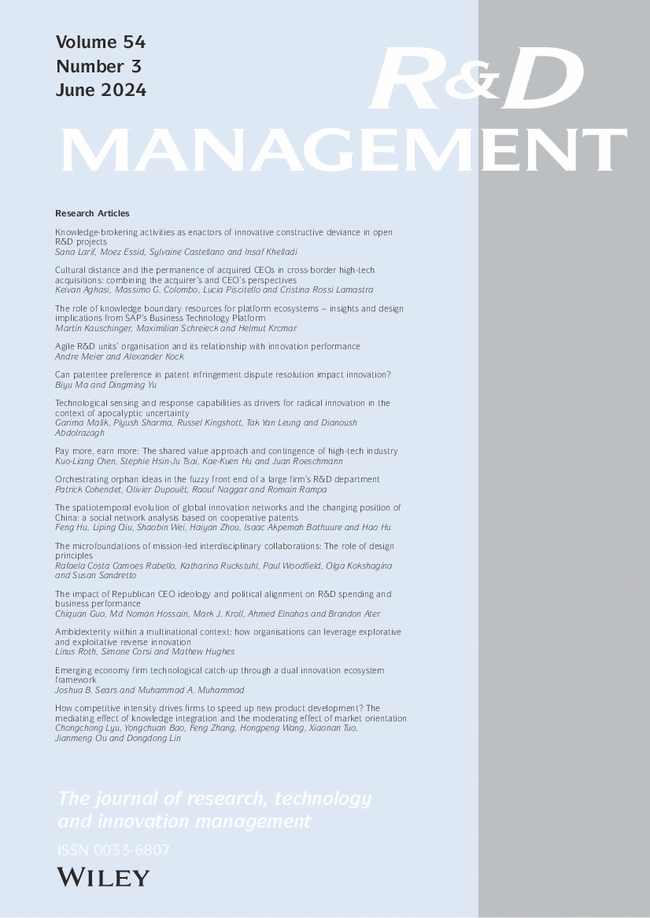Smart circular economy as a service business model: an activity system framework and research agenda
IF 5.7
2区 管理学
Q1 BUSINESS
引用次数: 0
Abstract
The circular economy is a new sustainability paradigm and a major driver of innovation in industrial firms. Digital servitization, enabled through smart products and their embeddedness in Internet of Things networks, represents a significant lever to generate product life cycle information and achieve collaboration between actors in the value cycle. Empirical studies on how product‐service system business models enable smart circularity are bourgeoning, but a gap exists regarding their microfoundations. Against this background, we adopt an activity system perspective to explore boundary‐spanning and interdependent business model activities. We conducted a qualitative interview study in business‐to‐business industries, from which we derived a funnel framework of smart circular systems (SCS) that spans three layers of the activity system. This contributes to theory in three ways: First, we identify 20 distinct microlevel activities. Second, we explain their interdependencies by classifying them based on the product life cycle into smart use, smart circular, and cross‐strategy activity sets. We also order these activity sets by their data transaction frequency, environmental and economic value, and a firm's typical learning pathway, as well as link them back into circular product design. Third, we highlight increasing servitization to develop the activity system across multiple circular activity sets. Managers can use the funnel as a template to drive circular business models on multiple levels, from adopting individual activities to redesigning the entire activity system.作为服务商业模式的智能循环经济:活动系统框架和研究议程
循环经济是一种新的可持续发展模式,也是工业企业创新的主要驱动力。通过智能产品及其在物联网网络中的嵌入实现的数字服务化,是产生产品生命周期信息和实现价值循环中参与者之间合作的重要杠杆。关于产品-服务系统商业模式如何实现智能循环的实证研究正在蓬勃发展,但在其微观基础方面还存在差距。在此背景下,我们采用活动系统的视角来探讨跨越边界、相互依存的商业模式活动。我们对企业对企业行业进行了定性访谈研究,从中得出了跨越活动系统三个层次的智能循环系统(SCS)漏斗框架。这在三个方面对理论做出了贡献:首先,我们确定了 20 项不同的微观活动。其次,我们根据产品生命周期将其分为智能使用、智能循环和跨战略活动集,从而解释了它们之间的相互依存关系。我们还根据数据交易频率、环境和经济价值以及企业的典型学习途径对这些活动集进行排序,并将它们与循环产品设计联系起来。第三,我们强调提高服务化程度,以发展跨多个循环活动集的活动系统。管理者可以将漏斗作为模板,从采用单个活动到重新设计整个活动系统等多个层面推动循环商业模式。
本文章由计算机程序翻译,如有差异,请以英文原文为准。
求助全文
约1分钟内获得全文
求助全文
来源期刊

R&D Management
Multiple-
CiteScore
11.30
自引率
9.50%
发文量
0
期刊介绍:
R&D Management journal publishes articles which address the interests of both practising managers and academic researchers in research and development and innovation management. Covering the full range of topics in research, development, design and innovation, and related strategic and human resource issues - from exploratory science to commercial exploitation - articles also examine social, economic and environmental implications.
 求助内容:
求助内容: 应助结果提醒方式:
应助结果提醒方式:


